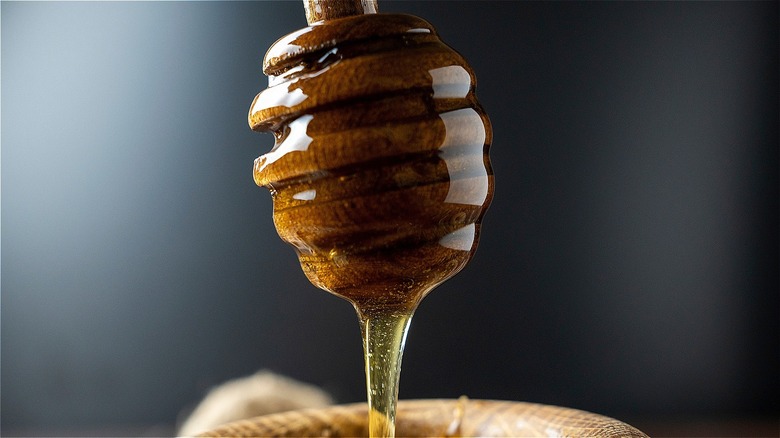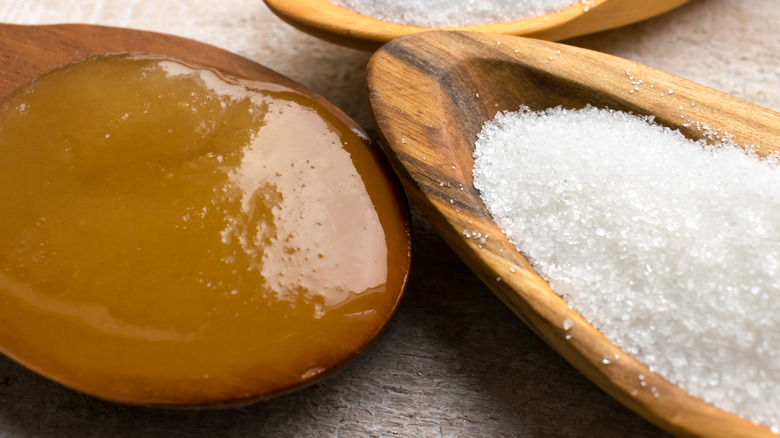Powdered Honey Is Your New Secret Weapon In The Kitchen
Sweet things are delicious, but the way they come with a nasty baggage of health hazards is just tragic. Because sugar can do a number on you, people often use alternatives like monk fruit sweetener, stevia, and dates to fill the bittersweet void and to hopefully keep debilities at bay. A good number of people also use honey as a natural sugar replacement since it has a lower glycemic index. Since honey is sweeter than sugar, a little goes a long way.
There are numerous benefits of using honey due to the presence of antioxidants, antibacterial properties, and trace amounts of nutrients like magnesium, calcium, and zinc. For all the good stuff this sweet nectar packs, its gooey consistency and high density can be a hassle to work with and makes food sticky. Props to whoever decided to take the sticky out of the equation and invented powdered honey.
Powdered honey is made by dehydrating liquid honey and grinding it into a fine powder or granules like sugar. Just like liquid honey, powdered honey can be used in a bunch of dishes and baked items. You can sprinkle it on your breakfast cereal or toast, use it as a sweetener in drinks like tea, coffee, or lemonade, and bake cakes, cookies, and desserts with it. It also works as a BBQ rub and a natural sweetener for ice cream. Powdered honey has a long shelf life, with some brands lasting up to 30 years when stored in optimum conditions.
Powdered honey vs white sugar
Powdered honey is easier to use and handle than liquid honey, but it loses nutrients in the dehydration process. Yet, it can be a healthier alternative to sugar when used in moderation. Dehydrated honey is nutritionally richer than white sugar. It is also easier to digest since bees break down the complex sugar in honey into simple sugars while adding enzymes to the nectar. Powdered honey can also be used like liquid honey by simply adding a little water to it.
While there are many advantages of using honey powder in cooking, there are a few downsides to it. For starters, it doesn't caramelize like the crispy melted sugar top of crème brûlée. It won't give your baked goods a chewy consistency, either. When you cook with powdered honey, it will soak up the moisture and increase in density as well as viscosity like liquid honey. Honey's natural sugars burn faster than white sugar, so the heat should be adjusted accordingly. If you are baking, reducing the temperature by around 25 degrees should help.
All in all, powdered honey can be a sweet new addition to your spice cabinet. You can even make an unadulterated version at home using a food dehydrator or oven. Survival Sullivan recommends spreading a layer of pure honey on a cookie sheet or a dehydrator tray. Dehydrated honey should be left to rest for about 24 hours after which it can be ground in a food processor.

